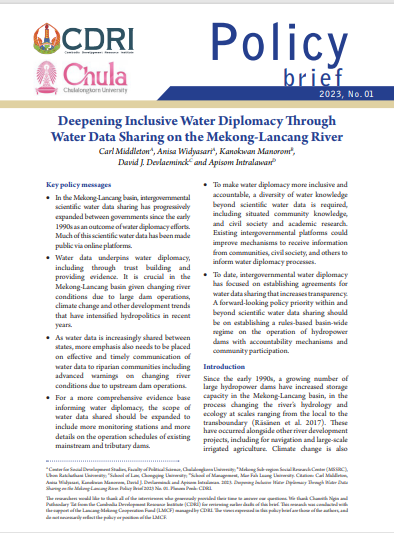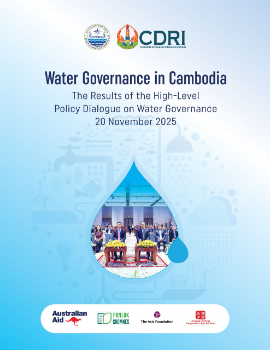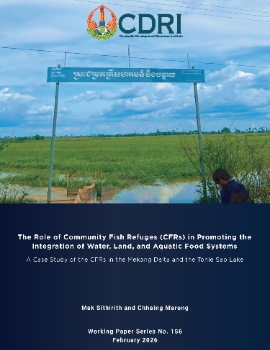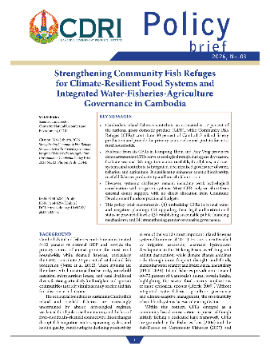
Policy Briefs
1
Deepening Inclusive Water Diplomacy Through Water Data Sharing on the Mekong-Lancang River
Abstract/Summary
- In the Mekong-Lancang basin, intergovernmental
scientific water data sharing has progressively
expanded between governments since the early
1990s as an outcome of water diplomacy efforts.
Much of this scientific water data has been made
public via online platforms.
- Water data underpins water diplomacy,
including through trust building and
providing evidence. It is crucial in the
Mekong-Lancang basin given changing river
conditions due to large dam operations,
climate change and other development trends
that have intensified hydropolitics in recent
years.
- As water data is increasingly shared between
states, more emphasis also needs to be placed
on effective and timely communication of
water data to riparian communities including
advanced warnings on changing river
conditions due to upstream dam operations.
- For a more comprehensive evidence base
informing water diplomacy, the scope of
water data shared should be expanded to
include more monitoring stations and more
details on the operation schedules of existing
mainstream and tributary dams.
- To make water diplomacy more inclusive and
accountable, a diversity of water knowledge
beyond scientific water data is required,
including situated community knowledge,
and civil society and academic research.
Existing intergovernmental platforms could
improve mechanisms to receive information
from communities, civil society, and others to
inform water diplomacy processes.
- To date, intergovernmental water diplomacy
has focused on establishing agreements for
water data sharing that increases transparency.
A forward-looking policy priority within and
beyond scientific water data sharing should
be on establishing a rules-based basin-wide
regime on the operation of hydropower
dams with accountability mechanisms and
community participation.



